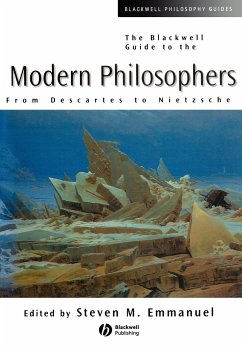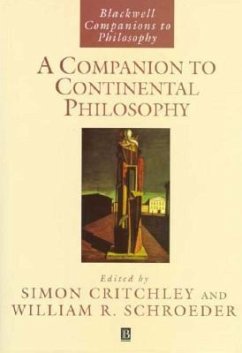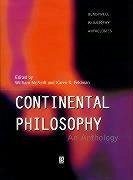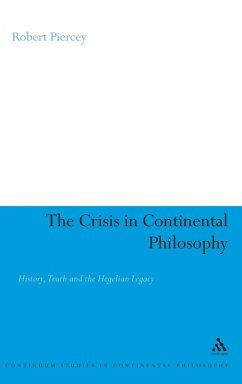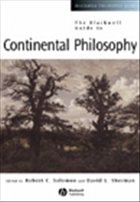
The Blackwell Guide to Continental Philosophy
Versandkostenfrei!
Versandfertig in über 4 Wochen
138,99 €
inkl. MwSt.
Weitere Ausgaben:

PAYBACK Punkte
69 °P sammeln!
The Blackwell Guide to Continental Philosophy is an accessible but sophisticated introduction to the most important figures in continental philosophy in the past two hundred years. The newly-commissioned essays that comprise this book reflect the enormous diversity of authors, concerns, and styles encompassed by the continental tradition. Although the chapters stand on their own as comprehensive overviews of each subject, they also reveal how the thinkers presented in this volume are interconnected. They detail the ways in which these philosophers influenced one another and even explore some n...
The Blackwell Guide to Continental Philosophy is an accessible but sophisticated introduction to the most important figures in continental philosophy in the past two hundred years. The newly-commissioned essays that comprise this book reflect the enormous diversity of authors, concerns, and styles encompassed by the continental tradition. Although the chapters stand on their own as comprehensive overviews of each subject, they also reveal how the thinkers presented in this volume are interconnected. They detail the ways in which these philosophers influenced one another and even explore some nasty rivalries. Among the figures and topics addressed are Hegel, Schopenhauer, Kierkegaard, Marx, Nietzsche, Husserl and phenomenology, Heidegger, Sartre, Merleau-Ponty, critical theory, Habermas, Gadamer, Foucault, Derrida, postmodernism, and French feminism.This book is a valuable resource for anyone with an interest in continental philosophy.





